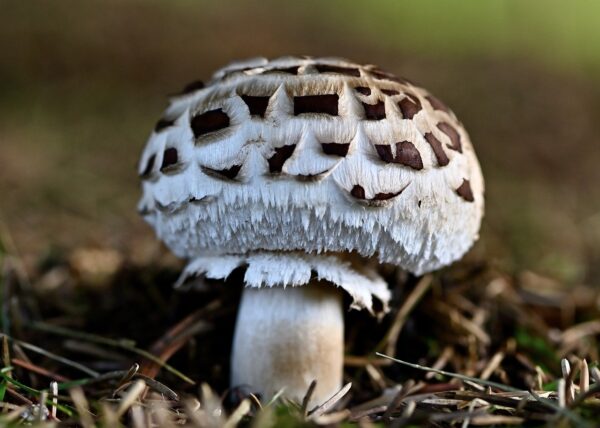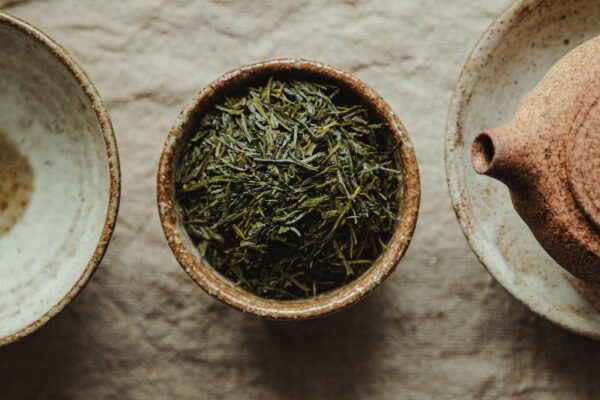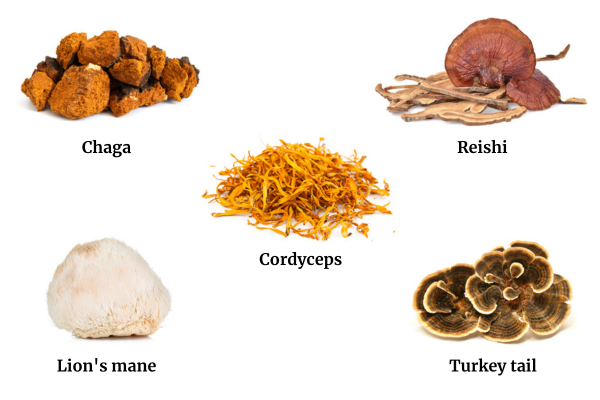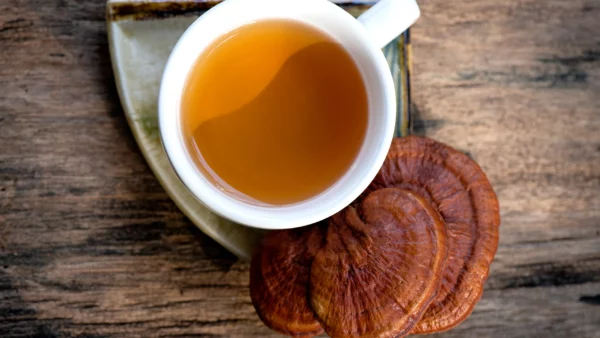
Tea has been cherished across cultures for centuries, offering a range of flavors, benefits, and rituals. Two types gaining popularity are leaf tea and mushroom tea. Each has unique characteristics and health benefits, making them appealing for different reasons. Let’s delve into the specifics of each to help you decide which might be better for your needs.
Leaf Tea
What is Leaf Tea?
Leaf tea is made from the leaves of the Camellia sinensis plant, which produces green, black, white, and oolong teas. The processing methods and oxidation levels create the diverse range of flavors and health benefits associated with each type.
Benefits of Leaf Tea

- Rich in Antioxidants: Leaf teas are loaded with antioxidants like catechins and flavonoids, which help fight free radicals and reduce inflammation.
- Heart Health: Regular consumption of leaf tea can improve heart health by lowering cholesterol levels and blood pressure.
- Weight Management: Certain teas, especially green tea, boost metabolism and aid in weight loss.
- Mental Alertness: The caffeine in leaf tea, combined with L-theanine, provides a calm and focused energy boost without the jitteriness associated with coffee.
- Dental Health: Tea contains fluoride and tannins, which can reduce plaque formation and promote dental health.
Popular Types of Leaf Tea

- Green Tea: Known for its high antioxidant content and light, fresh flavor.
- Black Tea: Richer and more robust, black tea is often enjoyed with milk and sugar.
- White Tea: The least processed, white tea has a delicate flavor and high antioxidant levels.
- Oolong Tea: A semi-oxidized tea with a complex flavor profile that falls between green and black tea.
Mushroom Tea
What is Mushroom Tea?
Mushroom tea is made by steeping medicinal mushrooms like reishi, chaga, lion’s mane, and cordyceps. These mushrooms have been used in traditional medicine for centuries due to their potent health benefits.

Benefits of Mushroom Tea
- Immune Support: Medicinal mushrooms are known for their immune-boosting properties, helping the body fight infections and illnesses.
- Stress Reduction: Adaptogenic mushrooms like reishi help the body cope with stress and promote relaxation.
- Cognitive Function: Lion’s mane mushroom is renowned for its potential to enhance cognitive function and protect against neurodegenerative diseases.
- Anti-Inflammatory: Mushroom tea can reduce inflammation and support overall health.
- Antioxidant Properties: Mushrooms like chaga are packed with antioxidants, protecting cells from damage and promoting longevity.
Popular Types of Mushroom Tea

- Reishi: Known for its calming effects and immune-boosting properties.
- Chaga: Rich in antioxidants, chaga supports immune health and reduces inflammation.
- Lion’s Mane: Enhances cognitive function and promotes nerve health.
- Cordyceps: Increases energy levels and athletic performance.
Leaf Tea vs. Mushroom Tea: Which is Better?

Choosing between leaf tea and mushroom tea depends on your personal preferences and health goals. Here’s a quick comparison to help you decide:
Leaf Tea
- Best For: Those seeking a wide range of flavors and types, antioxidant-rich drinks, and mild caffeine for energy and alertness.
- Consider If: You enjoy traditional tea rituals, want to support heart health, and are looking for a metabolism boost.
Mushroom Tea
- Best For: Individuals interested in medicinal benefits, immune support, stress reduction, and cognitive enhancement.
- Consider If: You are looking for a caffeine-free option with potent health benefits, enjoy experimenting with herbal and medicinal teas, and want to boost your overall wellness.
Both leaf tea and mushroom tea offer unique benefits that can cater to different health needs and taste preferences. Leaf tea is perfect for those who appreciate traditional teas and seek antioxidants and mild caffeine. On the other hand, mushroom tea is ideal for those looking to enhance their immune system, reduce stress, and support cognitive health with natural, caffeine-free options.
Ultimately, the best choice is the one that aligns with your health goals and personal taste. You might even find that incorporating both into your routine provides a balanced approach to enjoying the benefits of each. Happy sipping!
